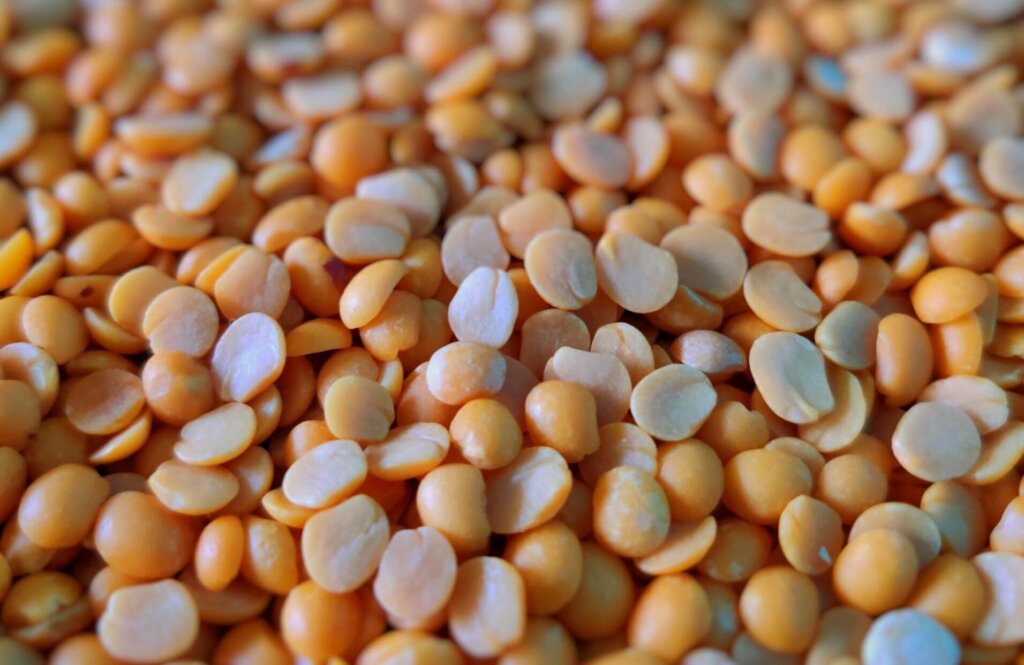Muscle Mac

Interest in pea protein has skyrocketed in the last few years. You can now find it in veggie burgers, energy bars, meal-replacement shakes, and more.
You could probably attribute much of this positive attention to the growth in vegetarian and vegan diets. But pea protein isn’t just for those on a plant-based diet. If you’re looking to boost the grams of protein in your diet, pea protein could be the right option for you.
Pea proteins are an extract made from yellow split peas. Proteins are made up of amino acids. There are nine amino acids that we must get from our food intake as our bodies can’t create them. Pea protein contains all nine essential amino acids (EAAs).
These amino acids are then extracted from ground yellow peas to create a beige powder. There are three types of pea protein products:
As you might guess, the type of pea protein that’s right for you will depend on your needs.
Pea protein powder isn’t just a high-quality, easily digestible source of protein. Several potential health benefits work in its favor.
Pea protein provides a healthy dose of iron, an essential nutrient for delivering oxygen throughout your body. It’s also rich in L-arginine, an amino acid important for several body functions such as fighting infection and trauma.
Pea protein is an excellent source of branched-chain amino acids (BCAAs), which prevent muscle wasting, support liver health, and more. It also contains a more balanced spread of amino acids when compared with products that have protein isolated from hemp seed, rice, or most other grains. And some products containing natural pea proteins have additional nutrients — like our Muscle Mac Aged Sharp White Cheddar Mac & Cheese, enriched with vitamin D, calcium, and potassium.
Pea protein is naturally vegan, as well as gluten- and lactose-free. This makes it handy for pretty much any diet, including for people who are lactose-intolerant or don’t consume dairy for any reason. Pea protein is also one of the most easily digested vegetable proteins — just behind soy protein and chickpeas.
Further, pea protein doesn’t contain any of the top eight food allergens — tree nuts, peanuts, eggs, shellfish, fish, dairy, wheat, and soy. Just avoid pea protein powder if you have an allergy, sensitivity, or intolerance to peas.
Studies have shown that pea protein can help build the same amount of muscle as whey protein — if you consistently combine it with enough weeks of resistance training or another exercise. This lack of statistical difference makes pea protein especially useful for older adults, bodybuilders, and those trying to increase muscle mass.
Pea protein contains valine, leucine, and isoleucine — all amino acids that promote muscle growth. The Deluxe Shells & Cheese by Muscle Mac contains 20 grams of protein in just one 400-calorie serving — providing a significant boost to your daily protein goals.
Pea protein can boost feelings of fullness after meals. Some research has even found the effects of pea protein rival or exceed those of dairy-based protein powders like whey or casein.
If you’re looking to increase your protein intake and decrease the carbs in your diet, pea protein is a great solution to stave off hunger. Considering the evidence, it’s not outlandish to suggest a high-protein diet that includes pea protein could reduce overall calorie intake and lead to weight loss over time.
With its high BCAA concentration, pea protein promotes healthy blood flow. L-arginine, one of the main proteins in peas, is needed to produce nitric oxide — necessary for the relaxation of blood vessel cells. A fairly current study found it also regulates blood pressure, helping lower both systolic and diastolic blood pressure readings.
Pea protein powder has also been found to reduce other risk factors for heart disease, like elevated cholesterol, in animal studies. It’s believed this occurs as the protein increases the uptake of cholesterol into cells and reduces the body’s production of fats.
Never substitute real food for pea protein powder. You should treat it as a supplement — an additional part of your daily nutritional intake.
For one, pea protein alone doesn’t contain the calories your body needs from a meal. Plus, you need to eat nutrients from other foods to increase the percentage of amino acids your body absorbs from pea protein.
Pea protein has a lower amount of the amino acid methionine than the other eight EAAs it contains. Combining a protein powder with other methionine-rich foods like eggs, fish, brown rice, or poultry will ensure you get more of the complete protein benefits of pea protein itself.
Additionally, consuming pea protein with vitamin C-rich foods like strawberries, broccoli, and oranges can increase the absorption of iron by up to 67%.
But how you can easily incorporate pea protein into a healthy diet?
Most people use pea protein in powder form, as a post-workout mix to boost their protein intake. Pea protein powder blends well with water, increases thickness, and has a less chalky texture than some plant-based protein powders, such as hemp.
Other ideas to include pea protein in your diet include:
Do you think you’d benefit from pea protein isolate in your diet but you’re far too busy to blend it into smoothies, cookies, or milk? Let us handle the work for you.
Each Muscle Mac serving contains 40% of your daily grams of protein, all combined from different sources — the best pea proteins, pasta, and whey. Visit the Muscle Mac online shop to get in on the grind.